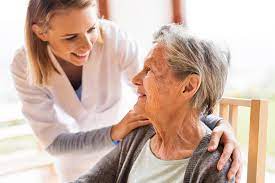The costs of aged care
- Amanda Varidel
- Mar 7, 2023
- 6 min read
Before you begin
“My Aged Care” is an Australian Government website and phone line to help you find out what aged care services may be available to help you. If you are considering entering aged care, if you have not done so already, we strongly recommend that you visit the website https://www.myagedcare.gov.au/ and use the contact details below for specific guidance relevant to your situation:
Call 1800 200 422
You will be asked questions over the phone to help work out your needs and care arrangements – this takes at least ten minutes.
You will need your Medicare card.
If you’re calling for someone else, they will need to give their consent.
In addition, we strongly urge you to undertake a formal assessment from the Department of Human Services in order to confirm the costs that are applicable to you. Your income and assets assessment will let you know if you can be asked to pay:
a “basic daily fee” (85% of the single person rate of the basic age pension)
a “means-tested care fee” (if your combined income and assets are over a certain amount)
“Accommodation costs” (if you are eligible for assistance with your accommodation costs)
Note this flyer covers the costs of entering a formal aged care facility such as an aged care home. It does not cover the costs of receiving care while remaining at home, i.e., receiving care from a service provider for a Home Care Package. Details of this alternative can be found at the website referenced above.
Costs of entering an aged care home
The total costs of an aged care home can be broken down into four separate expenses – the actual amount you will pay depends on several things, including the type of accommodation you have chosen.
Expense 1: The basic daily fee
All residents of an aged care home must pay something toward their daily living expenses. This is called the ‘basic daily fee’ and it covers things like: meals; cleaning; laundry; heating and cooling; some personal care; assistance with daily living and some medical care.
The basic daily fee is set by the Department of Human Services at 85% of the single Age Pension. As a guide, as of 20th September 2022 - 19th March 2023, the maximum basic daily fee is $56.87.
Because the Age Pension is increased or ‘indexed’ twice a year to keep up with rising costs of living, the basic daily fee increases twice a year too.
The daily fee is the same for everyone, whether you receive the Age Pension.
You can never be charged more than 85% of the single age pension for your basic daily fee at a government subsidised aged care home.
Expense 2: Means Tested Care Fee
Some aged facility residents must pay extra towards their day-to-day personal care and nursing costs, but this only applies to people who can afford it - and the amount varies according to a means test of income and assets conducted by The Department of Human Services. If you do not complete an income and assets assessment, you will not be eligible for any Australian Government assistance towards your care.
Key points on the Means tested Care Fee:
The amount you pay will depend on your combined income and assets assessment and the cost of your care, however, there are limits in place. On 20th September 2022 - 19th March 2023, the maximum annual means tested care fee $30,574.33 and the maximum means tested care fee you can be asked to pay in a lifetime is $73,378.49.
If you need to pay the means-tested care fee, the Department of Human Services will tell you how much you need to pay.
If you do not need to pay the means-tested care fee, the Australian Government will pay the full cost of your care.
If you are a member of a couple, your fee will be based on half of your combined income and assets, regardless of who earns the income or owns the assets.
If you were receiving a ‘Home Care Package’ before moving to an aged care home and have been paying an income-tested care fee related to that, it counts toward to your annual and lifetime caps.
Your contribution may change as your income and assets go up and down.
The methodology used to assess you under the means test is complex. Full details can be found on the Department of Human Services website https://www.humanservices.gov.au/individuals/enablers/aged-care-means-test-residential-care
Expense 3: Accommodation costs
The aged care home can charge a fee for the accommodation they provide. This covers the bricks and mortar and maintenance costs.
The fee is set by individual aged car homes and all homes must clearly advertise their accommodation price. While the aged care home cannot ask you to pay more than the maximum accommodation price advertised on their website, they can charge you less than that amount if you negotiate.
Costs will vary according to factors such as local property prices, the type and size of the room and amenities provided (e.g., gym, swimming pool, gardens).
Your income and assets assessment will determine if you receive assistance with your accommodation costs. Some people will have their accommodation costs paid in full or in part by the Australian Government. Others will need to pay the price agreed to with the aged care home.
If you are eligible for assistance with your accommodation costs from the Australian Government, the Department of Human Services will tell you and the aged care home the amount that you will need to pay based on an assessment of your income and assets.
If you do not complete an income and assets assessment, you will not be eligible for any Australian Government assistance towards your accommodation costs.
This means your aged care home provider may ask you to pay:
the maximum accommodation price (agreed with the aged care home before you start care) and
the full cost of your care.
Paying for accommodation
If you are eligible for assistance with your accommodation costs, the amount you can be asked to pay for your accommodation is based on your income and assets, and will be one of the following:
Scenario 1: No accommodation costs: if your income and assets are below a certain amount, the Australian Government will pay your accommodation costs. Scenario 2: An "Accommodation Contribution": if you need to pay for part of your accomodation, the Australian Government will pay the rest. You can choose if you would like to pay your accommodation costs by a refundable accommodation contribution (RAC), daily accommodation contribution (DAC) or a combination of both. Scenario 3: An "Accommodation Payment": if you are not eligible for assistance with your accommodation costs and need to pay the full costs of your accommodation, you can choose if you want to pay your accommodation costs by a refundable accommodation deposit (RAD), daily accommodation payment (DAP) or a combination of both.
You will need to negotiate your room price directly with your aged care home.
Expense 4: Fees for Additional Services
There are extra costs depending on the choices you make. For example, some aged care homes offer rooms that are of a higher standard or larger than others and come with extras such as:
Cable/ satellite television
Phone, internet
Onsite hairdresser, beautician
Special therapies such as massage, aromatherapy, hydrotherapy
Facilities like a gym, pool, cinema, workshop, library etc.
A bigger choice of meals and inclusions such as beer, wine and spirits
Aged care homes must clearly advertise the cost of extra rooms.
There might also be extra 'fee for service' charges for things like dry cleaning or special outings and events. Such charges are not regulated by the government.
When you are choosing an aged care home, you will be given choices about 'fee for service' options and the process will be agreed between you and the home.
Important
The information in this flyer has been sourced from the Australian Government website, “My Aged Care” and is correct as at the date of this flyer. Rules can change frequently so it is important that you receive a formal assessment by using the contact details provided above before relying upon any information provided here.
More Information Department of Human Services on 1800 227 475 or Department of Veteran's Affairs on 133 254, (if you live in regional Australia call on 1800 555 254). or call Heart Financial Advisers on 1300 861 143





Comments